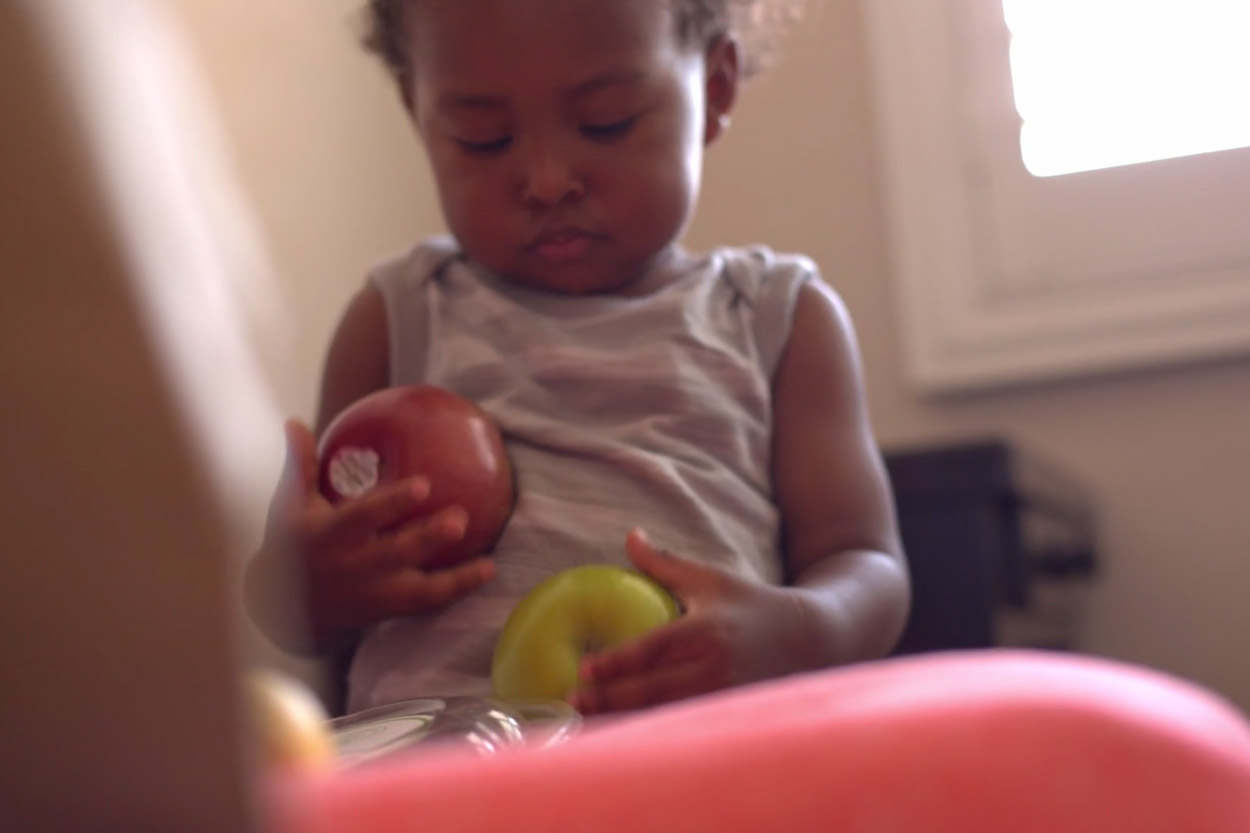Good Food for All: The FoodHub.LA Project
- Global Health
- Social Entrepreneurship

Summer 2016
The Good Food For All Studio challenged ArtCenter students to create a socially-conscious visual branding campaign for a new concept for a healthy food initiative for the City of Compton, a “food desert” where residents lack easy access to healthy and affordable fresh produce. Students used the inspiration of the farm-to-fork model of FoodHub.LA, a proposed dual-model social enterprise consisting of a farmer’s market and food processing facility to be located in Compton.
Project Brief
Addressing the big social issue of food deserts, students concentrated their research efforts on one Los Angeles neighborhood, the City of Compton, which has been working to find avenues to bring healthy and affordable fresh food to its residents.
Students were challenged to create an effective and engaging cross-platform campaign about a new innovative local food enterprise inspired by the ideas of FoodHub.LA, a proposed community approach to eradicate food deserts with a local farmer’s market with produce from local farmers, and a food production facility that will use the produce to create healthy, ready-to-eat meals.
Students investigated the concept of food deserts, uncovering alarming statistical facts about this growing social and economic health problem.
Seeking to understand and respect the varied cultural communities of Compton, students reached out to discover residents’ personal experiences and histories that shape this unique neighborhood.
Students also researched the components of successful branding campaigns, taking theoretical communication ideas and putting them into practical designs and emotional concepts that would effectively speak to their target audiences.

“What was extremely impressive during the day of the presentation was the emotional intensity we felt from our guests and from the Compton Chamber of Commerce. The message was so on point, everyone had teary eyes. The work not only delivered the message, but it also connected on an emotional level as well. Communication design is not just about ideas and processes, it’s about emotion.”
– Guillaume Wolf, Instructor, Graphic Design
Background
A term coined in the mid-1990s, “food desert” is an area where residents have inadequate access to healthy, reasonably-priced food. That economic condition was prompted by urbanites moving from big cities into suburbia which resulted in supermarkets closing in once-traditionally populated neighborhoods.
For many years, Compton residents in South Los Angeles have struggled to find healthy, affordable and easily accessible food; the lack of healthy food has created a malnourished population prone to disease. The city of about 100,000 has one of the highest rates of diet-related diseases in Los Angeles County, according to a recent Los Angeles County Health Survey. A third of residents have hypertension, 40% are obese and 13% have diabetes.
A 2009 study by the American Journal of Preventative Medicine found that neighborhoods with better access to supermarkets and limited access to convenience stores tend to have more healthful diets and lower levels of obesity.
Residents that shop at Compton’s few grocery stores find inadequate supplies of fruits and vegetables that are often rotten, unripe or flavorless. Some residents drive miles to grocery shop at neighboring cities which can drain time and finances.
Today, many innovative social initiatives are building the foundation to change Compton’s food desert status. FoodHub.LA is a concept for one such endeavor that would aim to create a farm-to-table approach with a food production facility and farmer’s market that will create local jobs, bond a community and present healthy eating options that are affordable, easy-to-acquire, tasty and nutritious.
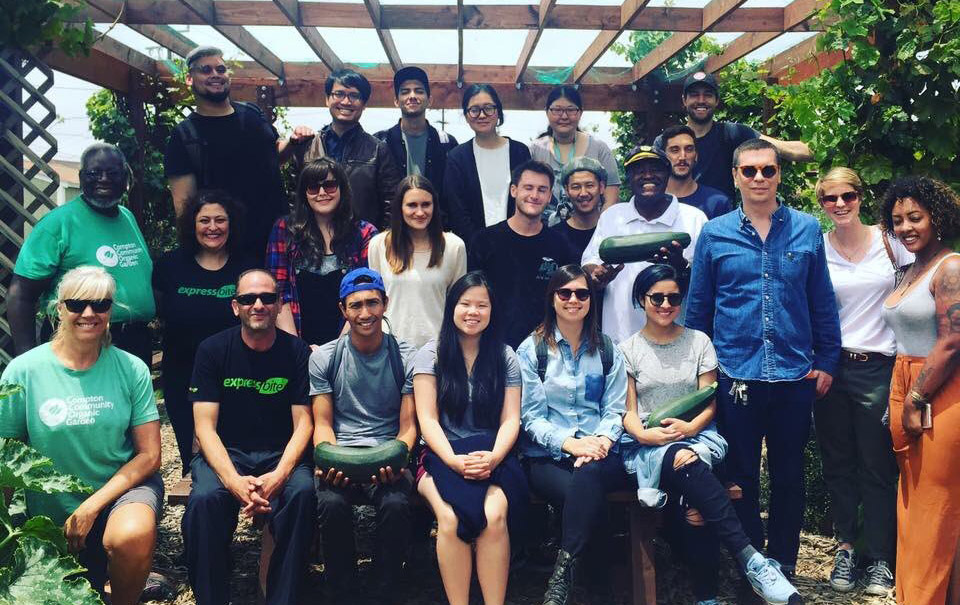
“I really enjoyed learning about this project. I knew of food deserts but felt the problem was too big to make a difference, so I would overlook and avoid the news. I felt the problem was beyond my ability to help, but this class [was] definitely an eye opening experience in terms of what design can do.”
– Kathryn Hipke, Student, Graphic Design
Research and Development
For any branding campaign to be successful there must be an authentic message combined with extensive knowledge and integration of the local culture. Hands-on research was especially vital in this studio and consisted of field trips, individual interviews, guest lecturers and other creative explorations. Students were first immersed in the complex culture of Compton, which is a mix of African American and Latino residents.
Students visited Compton on a field trip, guided by the Compton Business Chamber of Commerce. Students discovered the recent history of the 10-square mile neighborhood, the city’s demographical makeup, important statistics and its high concentration of fast food restaurants. They also learned the reasons behind the failed attempt to introduce a “healthy” grocery store in the area. Students ended the trip with a meal at the Compton Organic Community Garden where they met and discussed the issues with local urban farmers who run the operation.
One student – who grew up in Compton – conducted a series of individual interviews with residents and shared these personal stories with the class.
Students heard insights from guest lecturer Ron Finley, better known as the “Gangsta Gardener,” who is working to create an urban garden in South Central LA with the goal of “converting food deserts into food forests.”
With up-to-date information from a lecture by the Los Angeles Food Policy Council, students then began the process of sifting through data to conceptualize images and words that would elicit positive responses from Compton residents and other stakeholders (financial donors, etc.) invested in transforming the current food landscape.
Utilizing the proposed concept of FoodHub.LA, students focused on a design that would incorporate this dual model enterprise, and which could be easily adaptable to different cities and new organizational models under a unified umbrella.
Guided with data and research, students drafted concepts for logos, slogans and messaging images. Short videos were also created to emotionally and visually tell the story of food, community and health. A website was designed to capture the important key elements of the enterprise and to encourage participation. Additionally, a donor rewards program was drafted to encourage contributions from all economic levels.
Classroom discussions on the components of a successful communications campaign dovetailed with the student’s design and redesign processing. Throughout the studio, students were reminded to keep their client’s brief always in the forefront of their thinking and to remember their target audience.

“If you don’t touch soil, you’re a slave to the food industry.”
– Ron Finley, ‘Gangsta Gardener’ and Studio Lecturer
Project Outcomes
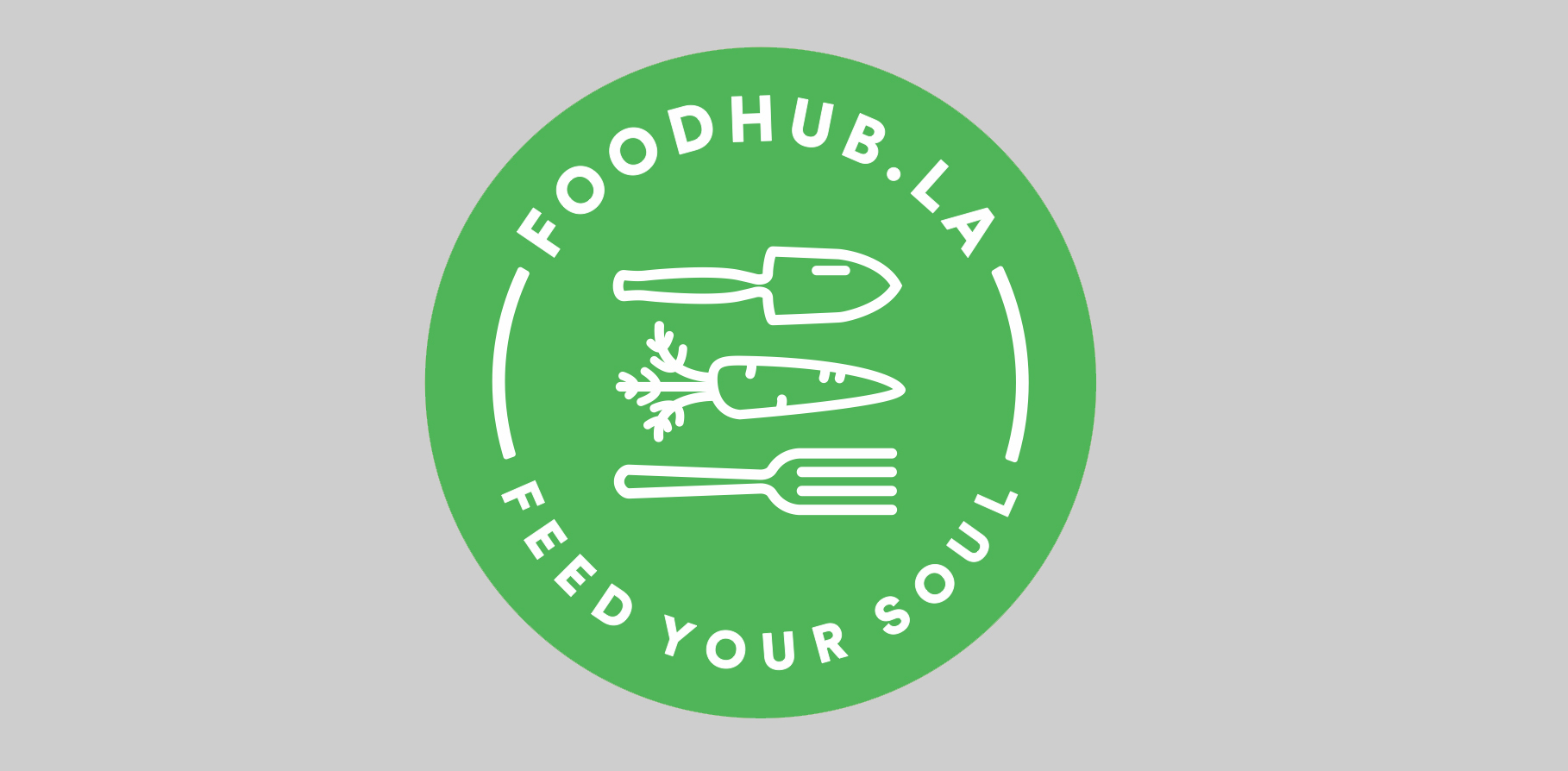 close
close
Logos
Read more
To symbolize the farm-to-table connection, the logo incorporates a spade, carrot and fork. The “Feed Your Soul” tagline conveys a direct call to action message and can also refer to food as a connection between body and spirit. Logos would be displayed on numerous consumer items as well as on food trucks and food packaging.
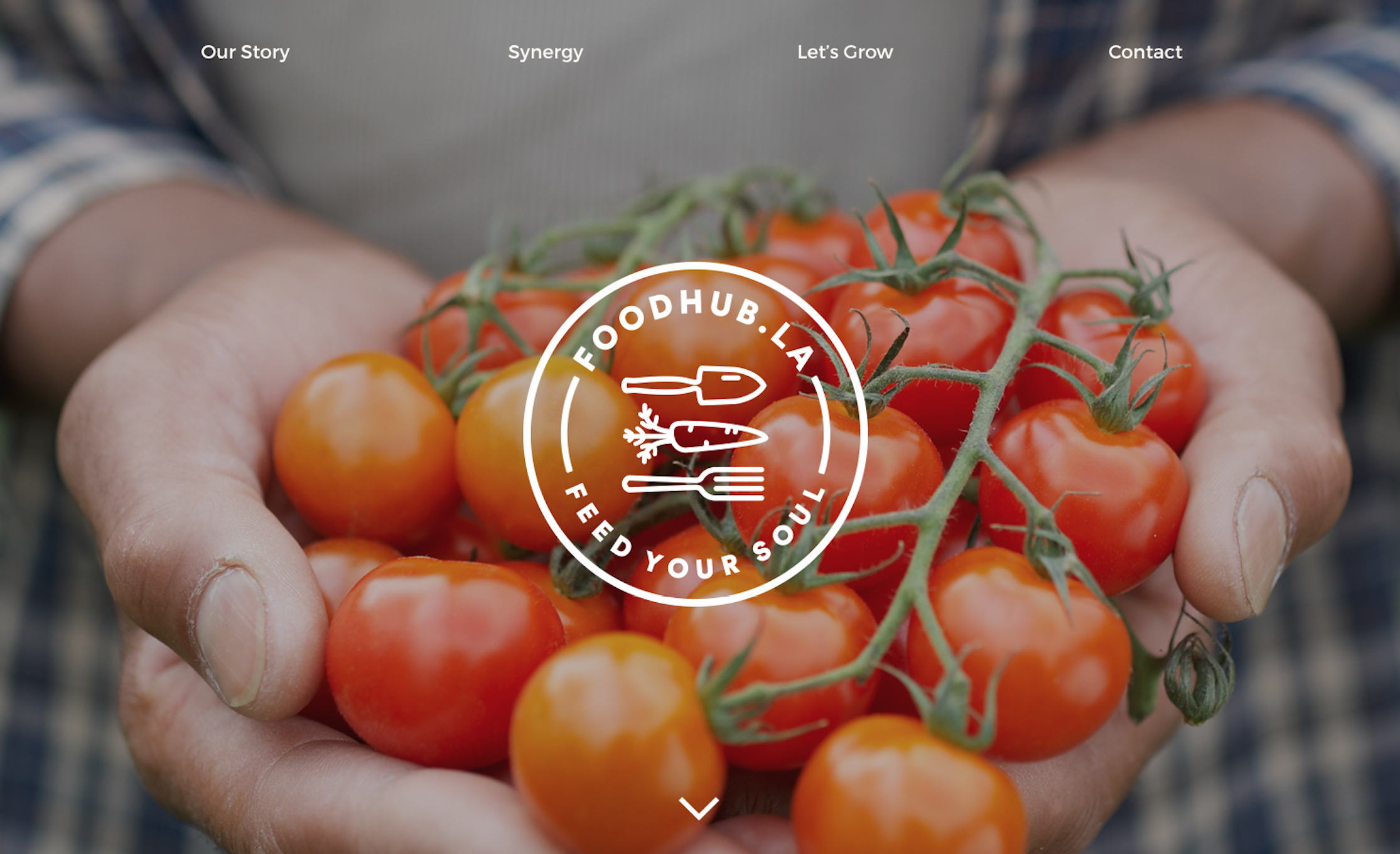 close
close
Website Design
Read more
Consisting of simple, short text and enticing large photos, website pages for FoodHub.LA introduces the organization to readers, explains its mission, and extends an invitation to join the movement. Other web pages include location maps and a shopping component to support the cause.
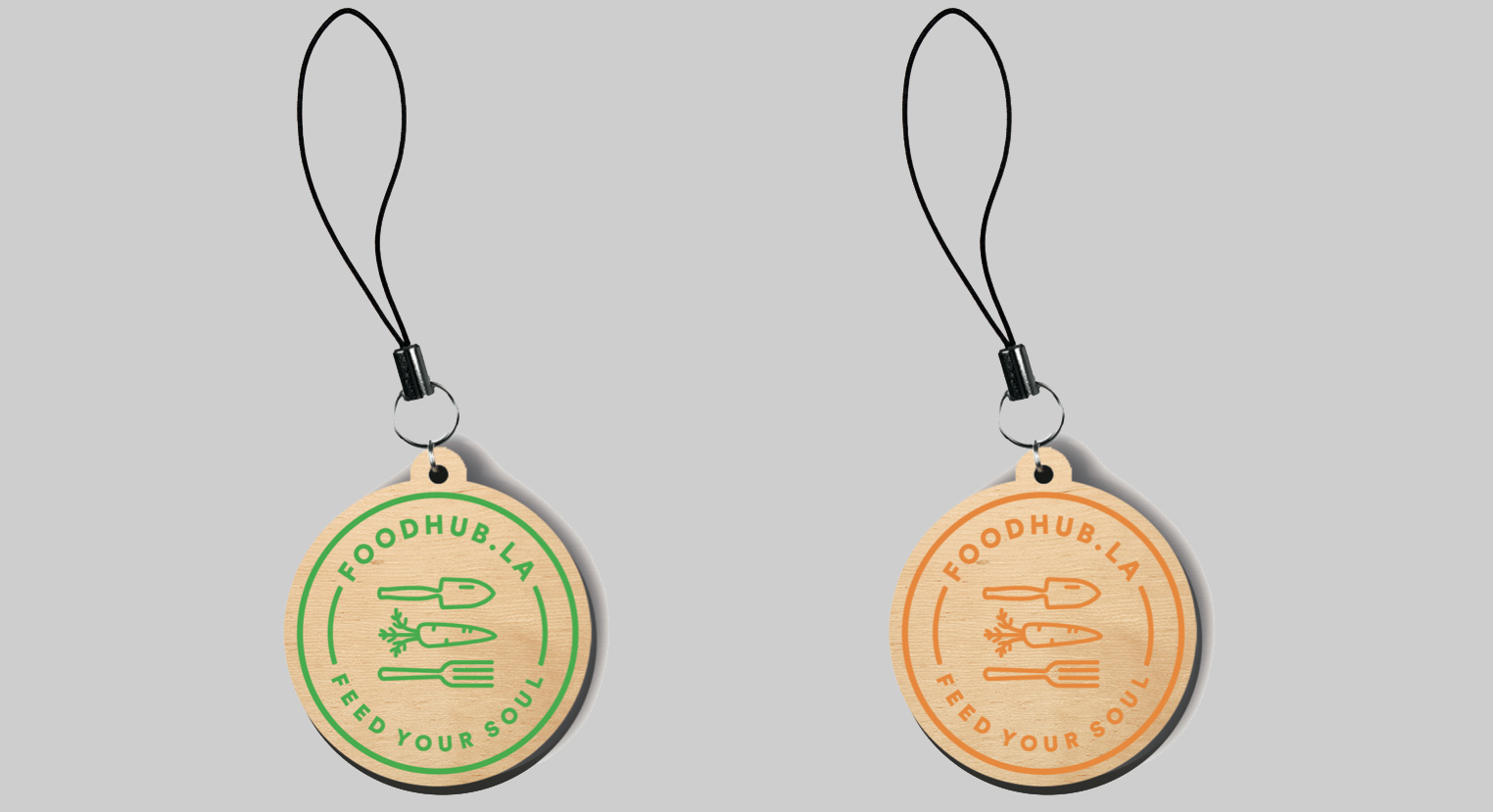 close
close
Donor Rewards Program
Read more
Designed to engage stakeholders and residents, the program offers FoodHub.LA branded items at specific levels of donation: stickers, buttons and wooden charms as well as t-shirts, tote bags and lapel pins. This serves as an incentive to donate, and as a way to build a sense of community around FoodHub.LA. A donor wall positioned on the side of the FoodHub.LA food processing building would record names of philanthropic donors.
